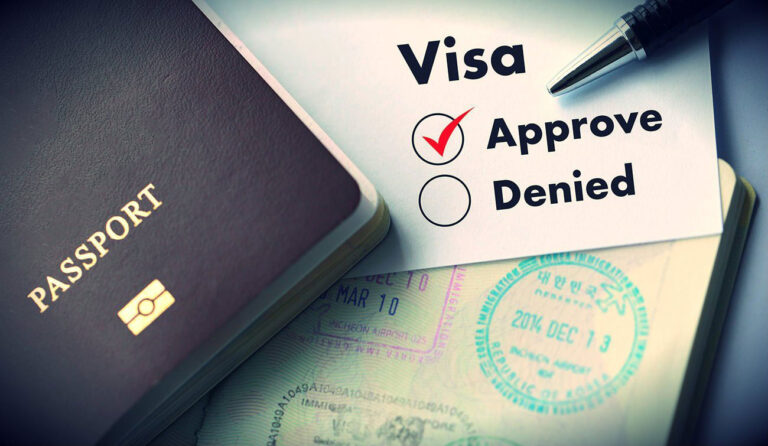Europe is a land of opportunities for job seekers worldwide, offering diverse industries, competitive salaries, and vibrant cultures. For non-EU citizens, navigating visa requirements and job markets can be challenging, but certain countries make it easier. Below, we explore the top European destinations for non-EU job seekers, detailing job sectors, visa policies, and living conditions to help you make informed decisions.
1. Germany: Europe’s Economic Powerhouse
Key Sectors
Germany boasts a robust economy with job opportunities across:
- Engineering (mechanical, electrical, civil)
- Information Technology
- Healthcare (nurses, doctors, caregivers)
- Manufacturing
Visa Policies
Germany offers a Blue Card for highly skilled non-EU workers. Requirements include:
- A recognized university degree
- A job offer with a minimum salary threshold (typically around €58,400, reduced for in-demand professions)
Job-Seeker Visa: Non-EU citizens can also apply for a six-month job-seeker visa.
Living Conditions
Germany offers a high standard of living with affordable healthcare and excellent public infrastructure. Popular cities for jobs include Berlin, Munich, Frankfurt, and Hamburg.
| Key Metric | Average Value |
|---|---|
| Average Monthly Salary | €4,000 |
| Cost of Living | €1,200/month (single) |
| Unemployment Rate | 2.8% |
2. Netherlands: A Tech and Startup Hub
Key Sectors
The Netherlands is renowned for:
- Technology and software development
- Logistics and supply chain
- Creative industries
- Agriculture and food technology
Visa Policies
The Netherlands offers a Highly Skilled Migrant Program. Requirements include:
- A job offer from a registered employer
- Minimum salary thresholds (€5,000/month for over 30s; lower for younger professionals)
Additionally, the country’s Startup Visa supports entrepreneurs.
Living Conditions
With English widely spoken, expats find it easier to adapt. Amsterdam, Rotterdam, and Eindhoven are key cities.
| Key Metric | Average Value |
| Average Monthly Salary | €3,800 |
| Cost of Living | €1,500/month (single) |
| Unemployment Rate | 3.4% |
3. Sweden: A Pioneer in Work-Life Balance
Key Sectors
Sweden’s industries include:
- Clean energy
- IT and telecommunications
- Healthcare
- Automotive (e.g., Volvo, Scania)
Visa Policies
Non-EU workers need a job offer before applying for a work permit. Key requirements include:
- A job offer meeting minimum salary levels (€3,000/month)
- Employment terms matching Swedish standards
Living Conditions
Known for its progressive society and excellent healthcare, Stockholm and Gothenburg are expat-friendly.
| Key Metric | Average Value |
| Average Monthly Salary | €3,400 |
| Cost of Living | €1,700/month (single) |
| Unemployment Rate | 6.9% |
4. Ireland: Gateway for English-Speaking Professionals
Key Sectors
Ireland is a hub for:
- Finance and banking
- Information technology
- Pharmaceuticals
- Customer service
Visa Policies
The Critical Skills Employment Permit targets:
- ICT professionals
- Engineers
- Healthcare workers
Non-EU citizens can also apply for General Employment Permits.
Living Conditions
With a high quality of life, Dublin and Cork are hotspots for expatriates.
| Key Metric | Average Value |
| Average Monthly Salary | €3,800 |
| Cost of Living | €2,000/month (single) |
| Unemployment Rate | 4.1% |
5. Poland: Affordable Entry into Europe’s Job Market
Key Sectors
Poland’s growing industries include:
- IT and software development
- Shared service centers
- Manufacturing
- Education (English teachers)
Visa Policies
Poland offers:
- Work permits sponsored by employers
- A residence permit for long-term stays
Living Conditions
Affordable living costs and a central location make Poland attractive. Warsaw and Kraków are key cities.
| Key Metric | Average Value |
| Average Monthly Salary | €1,200 |
| Cost of Living | €800/month (single) |
| Unemployment Rate | 3.1% |
6. Portugal: A Rising Star for Remote Work and Startups
Key Sectors
Portugal is known for:
- Tourism and hospitality
- IT and startups
- Renewable energy
- Construction
Visa Policies
The D7 Visa caters to remote workers and entrepreneurs. Work permits are also available for in-demand sectors.
Living Conditions
Affordable living and a sunny climate make Lisbon and Porto popular destinations.
| Key Metric | Average Value |
| Average Monthly Salary | €1,200 |
| Cost of Living | €1,000/month (single) |
| Unemployment Rate | 5.8% |
7. Czech Republic: A Booming Job Market
Key Sectors
Top industries include:
- Automotive and engineering
- IT and telecommunications
- Healthcare
- Education
Visa Policies
Work permits are linked to employer sponsorship. A trade license (Zivno) is also an option for freelancers.
Living Conditions
Prague is a major hub, offering a blend of affordability and culture.
| Key Metric | Average Value |
| Average Monthly Salary | €1,400 |
| Cost of Living | €1,000/month (single) |
| Unemployment Rate | 2.6% |







